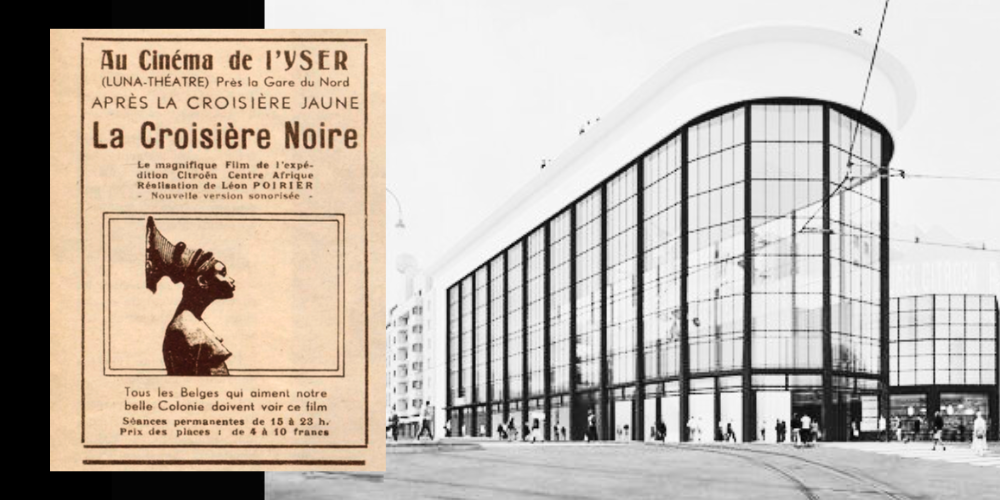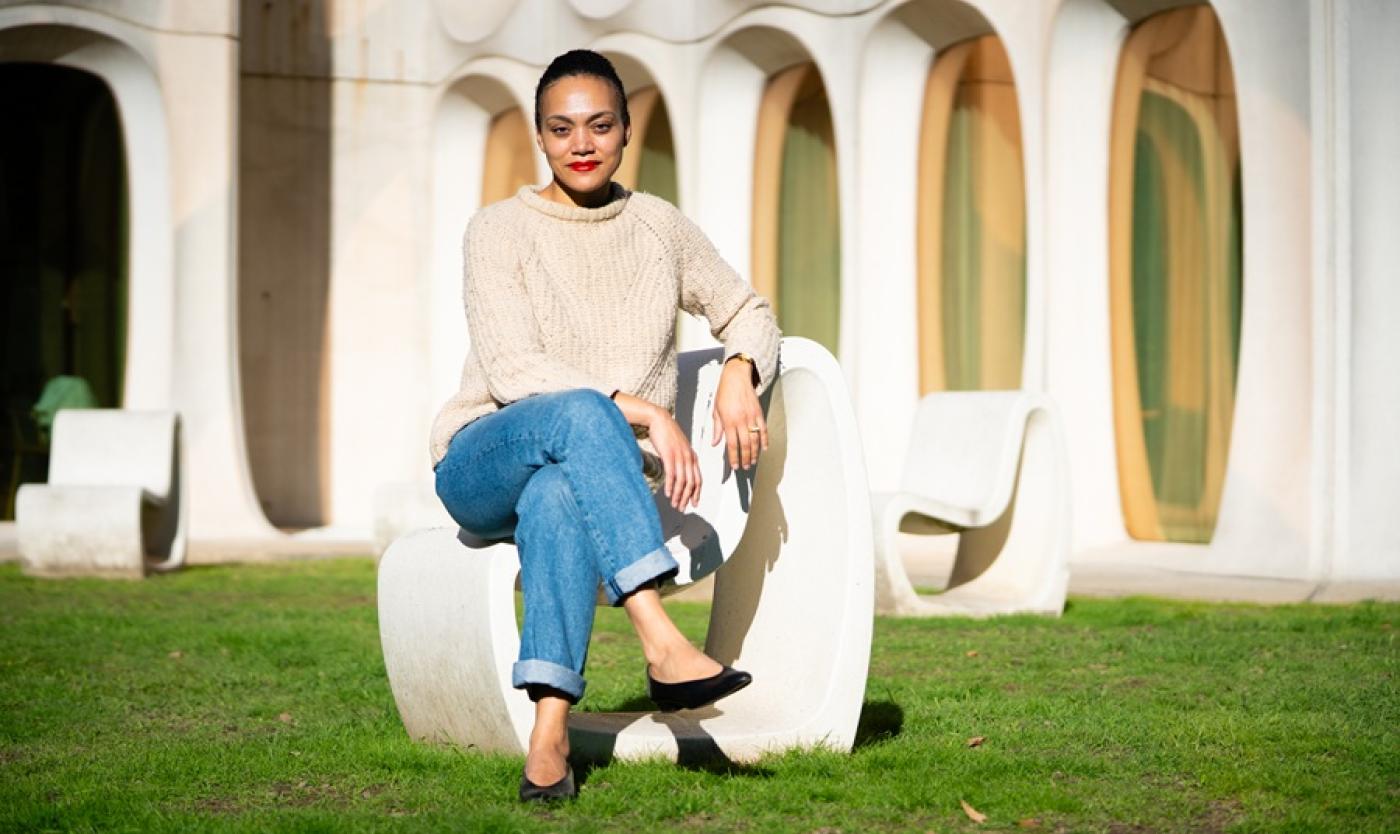
Practical
Pleinlaan 2
1050 Elsene
Building I Room I.0.01
The Vrije Universiteit Brussel invites you to an evening with Sandrine Colard, curator of museum KANAL, as part of the lecture series ‘Ties That Bind Us’.
The former Citroën garage in Brussels, a modernist landmark from 1934, is as imposing as it is loaded with meaning: it was built at a time when Belgium still mirrored itself in its colonial power. The opening of the showroom was given extra prestige through the Croisière Noire (1924–1925), a spectacular Citroën expedition across Africa. At once propaganda, advertising and spectacle, the journey turned the Mangbetu women of northeastern Congo into exotic icons. Their distinctive silhouette and bell-shaped hairstyle were endlessly reproduced in photographs, paintings, postcards, exhibitions, and even a blockbuster film.
The Congolese Mangbetu women: from colonial curiosity to a source of strength and imagination
The exhibition An Infinite Woman: Black Archives in Two Acts – curated by Sandrine Colard – will be part of the museum’s opening program in 2026. It revisits this history, examining how colonial imagery became embedded in the story of modernity, and how artists of African descent have since given it new meaning. Archival materials are placed alongside works by 15 contemporary artists, who transform the Mangbetu women’s symbolism from colonial curiosity into a source of strength and imagination.
Inspired by the work of cultural thinker Saidiya Hartman, Colard explores artistic strategies to expose the blind spots of colonial archives. These archives mostly reflect the voices of those in power, while the experiences and perspectives of colonized people are often absent or deliberately erased. Artists seek to fill these silences: by retelling the stories that were never written down, by using African hair culture as a living memory, and by creating new ways to show and to see art and history.
In this lecture, Sandrine Colard takes this historical context as a starting point to ask a fundamental question: what does it mean to be a museum today? How can an institution born as a showcase of power and colonial hierarchy be reinvented for the 21st century?
This lecture is sold out. Would you like to stay informed about our upcoming activities? Subscribe to our mailing list:

About Sandrine Colard
Sandrine Colard is an associate professor at Rutgers University-Newark (United States) and curator-at-large at the Kanal-Centre Pompidou Museum in Brussels (Belgium). A specialist in African art and photography, her recent writings have appeared in The Routledge Companion to Decolonising Art History (2024), A World in Common: Contemporary African Photography (Tate, 2023), and Style Congo: Heritage and Heresy (CIVA, 2023). She curated the exhibitions Recaptioning Congo (FOMU, 2022), Congoville (Middelheim Museum, 2021), The Way She Looks: A History of Female Gazes in African Portraiture (The Image Centre, 2019) and the 6th edition of the Lubumbashi Biennale (DRC, 2019) . Her book on the history of photography in colonial Congo (1885-1960) will be published by Duke University Press in autumn 2026.
This event is part of the Ties That Bind Us series.
About Ties That Bind Us: transcultural perspectives on social forms
A cross-disciplinary series organised at the Faculty of Languages and Humanities for VUB’s Public Programme
The impact of global and geopolitical crises on European societies is widely felt. Common reactions to these are a growing societal divide and a rise in anti-democratic positions. The public imaginary is rife with a rhetoric dominated by the erection of walls, the demarcation of territory and claims of ownership. Crushed between polarised camps are vulnerable members of our societies – and thus humanity itself. Individuals with their complex identities are categorised into groups whose belonging, right to existence even, is called into question. Understanding the realities of diversity and change as given, the series “Ties that Bind Us” seeks to create a platform for a wide range of perspectives, life experiences and cultures of knowledge about forms of kinship, solidarity and conviviality – or, in other words, a counter-imaginary space to an increasingly widespread, yet dangerously reductive binary thinking.
Do you want to dive into History, Literature, Philosophy or Arts Science?
Discover our study programmes:
The world needs you
This initiative is part of VUB's public programme, a programme for everyone who believes that scientific knowledge, critical thinking and dialogue are an important first step to create impact in the world.
As an Urban Engaged University, VUB aims to be a driver of change in the world. With our academic edcuational programmes and innovative research, we contribute to the Sustainable Development Goals of the United Nations and to making a difference locally and globally.
